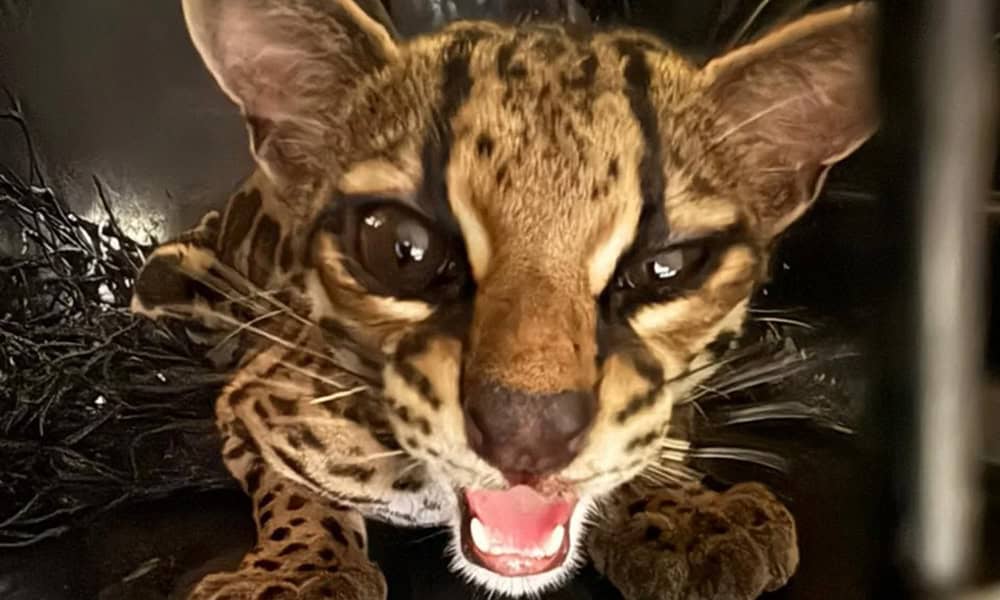A young margay wandered into a residential backyard here, prompting a swift rescue by environmental officials who found the wildcat in an oddly calm state. The incident unfolded on November 5 when a local resident noticed the small feline resting on a low branch in their yard.
Concerned about potential risks to a child or nearby farm animals, the family contacted the National System of Conservation Areas (SINAC), part of the Ministry of Environment and Energy (MINAE). Officials from the Tortuguero Conservation Area arrived quickly and identified the animal as a margay, known scientifically as Leopardus wiedii and locally as caucel.
The cat’s docile demeanor stood out—it appeared asleep and showed no fear of people, which raised questions about its background. For the safety of both the community and the animal, the team captured it without incident. They placed the margay in a secure carrier and moved it to an approved wildlife rescue center for assessment.
Veterinarians at the center sedated the margay for a thorough check. They reported the animal in solid health overall, with no major wounds. However, they removed several porcupine quills from around its mouth, signs of a recent failed hunt in the forest.
Experts now observe the young margay over the coming days to check for any human habituation, which could suggest prior captivity. If tests confirm it retains wild instincts, authorities plan to release it back into a protected natural area.
SINAC used the event to stress proper handling of wildlife encounters. Residents should avoid contact and report sightings to officials or emergency services at 9-1-1, allowing trained teams to step in safely.
Margays rank among Costa Rica’s six native wildcat species, sharing forests with jaguars, pumas, ocelots, oncillas, and jaguarundis. These agile climbers can descend trees headfirst and grip branches with a single hind paw. Yet they face ongoing pressures from shrinking habitats and illegal pet trade captures.
This rescue highlights how human expansion brings wildlife closer to homes, calling for balanced conservation efforts in regions like Pococí.






